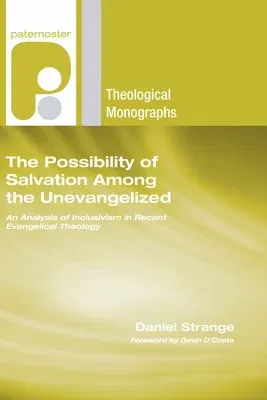In the area of systematics known as the theology of religions, those who
affirm the particularity of Christ in terms of truth, revelation, and
salvation have always had to deal with the problem of the unevangelized:
those who have never heard of Christ through no fault of their own. For
evangelical theologians this issue impinges on fundamental tenets of
evangelical identity. Recently the fate of the unevangelized has
received detailed attention from evangelicals, and has been fiercely
debated because of the wider doctrinal issues it raises. The position
known as inclusivism has been most fully developed by Clark H. Pinnock,
an influential and controversial evangelical theologian, known as being
the leading spokesman of Arminianism and a new theistic paradigm
entitled the trinitarian openness of God. Through a detailed analysis
and critique of his work, this book examines a cluster of issues
surrounding the unevangelized and its implications for Christology,
soteriology, and evangelical identity. A very thorough investigation of
Clark Pinnock's theology which sets it quite clearly within the
framework of traditional evangelical thought and shows how and to what
extent Pinnock has deviated from that. Dr Strange has covered the ground
as well as anyone could, and his conclusions are both coherent and
sensible. It will undoubtedly be an important reference work for anyone
interested in current evangelical thought. --Professor Gerald L. Bray
Beeson Divinity School, Samford University Wishing to do justice to the
fullness of salvation in Jesus Christ as well as its finality, I placed
a model of evangelical inclusivism on the table for discussion. I knew I
was not the only evangelical who finds himself thinking that God's grace
cannot be limited to the relatively few who, because of time and place,
have had a chance to respond to the gospel. But at the same time my
thesis is a controversial one, even though many evangelicals have held
it over the centuries. In a painstaking critique, Daniel Strange has
laid his axe to the root of the tree and provoked a more profound
discussion. In doing so, he makes an important contribution. --Clark H.
Pinnock McMaster Divinity College, Canada Daniel Strange is Friends of
Oak Hill Lecturer in Culture, Religion and Public Theology at Oak Hill
College in London.


